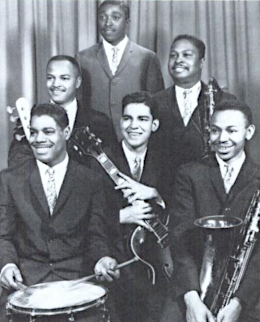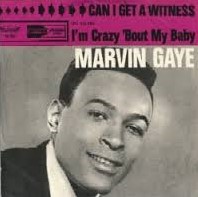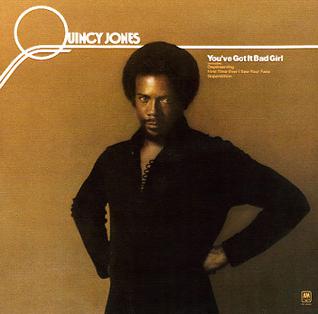Related Research Articles

The Dick Van Dyke Show is an American television sitcom created by Carl Reiner that initially aired on CBS from October 3, 1961, to June 1, 1966, with a total of 158 half-hour episodes spanning five seasons. It was produced by Calvada Productions in association with the CBS Television Network, and was shot at Desilu Studios. Other producers included Bill Persky and Sam Denoff. The music for the show's theme song was written by Earle Hagen.

Richard Wayne Van Dyke is an American actor, entertainer, and comedian. His award-winning career has spanned seven decades in film, television, and stage. Van Dyke is the recipient of multiple awards, including a Golden Globe, Tony, Grammy, a Daytime Emmy, and four Primetime Emmys. He was inducted into the Television Hall of Fame in 1995 and the Hollywood Walk of Fame in 2012. He was honored with the Screen Actors Guild Life Achievement Award in 2013, the Kennedy Center Honors in 2021 and was recognized as a Disney Legend.

The Funk Brothers were a group of Detroit-based session musicians who performed the backing to most Motown recordings from 1959 until the company moved to Los Angeles in 1972.

"Supercalifragilisticexpialidocious" is a song and single from the 1964 Disney musical film Mary Poppins. It was written by the Sherman Brothers, and sung by Julie Andrews and Dick Van Dyke. It also appears in the 2004 stage show version. Because Mary Poppins was a period piece set in 1910, songs that sounded similar to songs of the period were wanted. The movie version finished at #36 in AFI's 100 Years...100 Songs survey of top tunes in American cinema.

"Can I Get a Witness" is a song composed by Brian Holland, Lamont Dozier, and Eddie Holland and produced by Brian Holland and Lamont Dozier as a non-album single for American recording vocalist Marvin Gaye, who issued the record on Motown's Tamla imprint in September 1963.

"Carolina in the Morning" is a popular song with words by Gus Kahn and music by Walter Donaldson, first published in 1922 by Jerome H. Remick & Co.
"I've Got a Lovely Bunch of Coconuts" is a novelty song composed in 1944 by Fred Heatherton, a songwriting pseudonym for a collaboration of English songwriters Harold Elton Box and Desmond Cox, with Lewis Ilda. The song was published by Box and Cox Publications (ASCAP).

Earl Van Dyke was an American soul musician, most notable as the main keyboardist for Motown Records' in-house Funk Brothers band during the late 1960s and early 1970s.

Barry Blue is an English singer, producer, and songwriter. As an artist, he is best known for his hit songs "Dancin' " and "Do You Wanna Dance".
"All I Do Is Dream of You" is a popular song. The music was written by Nacio Herb Brown, the lyrics by Arthur Freed. The song was published in 1934. It was originally written for the Joan Crawford film Sadie McKee (1934) when it was played during the opening credits and later sung by Gene Raymond three times. It was also sung in the film by Earl Oxford in a show. The song is also featured in the films Singin' in the Rain, A Night at the Opera, The Affairs of Dobie Gillis, and Crimes and Misdemeanors.

Live at the London Palladium is a live double album by soul musician Marvin Gaye, released March 15, 1977, on Tamla Records. Recording sessions took place live at several concerts at the London Palladium in London, England, in October 1976, with the exception of the hit single "Got to Give It Up", which was recorded at Gaye's Los Angeles studio Marvin's Room on January 31, 1977. Live at the London Palladium features intimate performances by Gaye of many of his career highlights, including early hits for Motown and recent material from his previous three studio albums. As with his previous live album, Marvin Gaye Live!, production of the record was handled entirely by Gaye, except for the studio portion, "Got to Give It Up", which was managed by Art Stewart.
"I Had the Craziest Dream" is a popular song which was published in 1942. The music was written by Harry Warren, the lyrics by Mack Gordon.
"I'm in the Mood for Love" is a popular song published in 1935. The music was written by Jimmy McHugh, with the lyrics by Dorothy Fields. The song was introduced by Frances Langford in the movie Every Night at Eight released that year.
"Somewhere Along the Way" is a popular song.
"Isn't This a Lovely Day?" is a popular song written by Irving Berlin for the 1935 film Top Hat, where it was introduced by Fred Astaire in the scene where his and Ginger Rogers' characters are caught in a gazebo during a rainstorm. The lyric is an example of a song which turns a bad situation into a love song, a common style for Irving Berlin, as in I've Got My Love to Keep Me Warm and Let's Have Another Cup of Coffee.
"That's For Me" is a popular song, written by Richard Rodgers, with the lyrics by Oscar Hammerstein II. The song was published in 1945 and included in the 1945 version of the musical film State Fair.

You've Got It Bad Girl is a 1973 album by the American jazz musician/producer Quincy Jones.
"I Got a Line on You" is a rock song by American rock band Spirit, originally recorded during the sessions for their second album, The Family That Plays Together, between March 11 and September 18, 1968. Widely considered to be a rock classic, the song was composed by guitarist/singer Randy California and produced by Lou Adler. The single credits engineering by Eric Wienbang. Released as a single ahead of the album by Ode Records in the US in October 1968, it began a slow rise up the charts.
"Don't You Miss Me a Little Bit Baby" is a 1967 soul song originally recorded by Motown singer Jimmy Ruffin and released on the company's Soul subsidiary label.
"Kookie, Kookie " is a song written by Irving Taylor and performed by Edward Byrnes and Connie Stevens. The single was produced by Karl Engemann and arranged by Don Ralke, and was featured on Byrnes' 1959 album, Kookie Star of "77 Sunset Strip".
References
- ↑ "Internet Broadway Database". ibdb.com. November 8, 2018.
- ↑ Weinert-Kendt, Rob (September 30, 2020). "How Could We Not Combine?". Train My Ear. Retrieved April 2, 2022.
- ↑ Inman, David M. (2014). Television Variety Shows: Histories and Episode Guides to 57 Programs. McFarland. ISBN 1476608776.
- ↑ Waldron, Vince (2001). The Official Dick Van Dyke Show Book. Applause. p. 355. ISBN 1557834539.
- ↑ "45cat.com". 45cat.com. Retrieved November 8, 2018.
- ↑ "45cat.com". 45cat.com. Retrieved November 8, 2018.
- ↑ "I've Got Your Number by Tony Bennett". Secondhand Songs. Retrieved April 2, 2022.
- ↑ "Discogs.com". Discogs.com. Retrieved November 8, 2018.
- ↑ "Discogs.com". Discogs.com. Retrieved November 8, 2018.
- ↑ "allmusic.com". allmusic.com. Retrieved November 8, 2018.